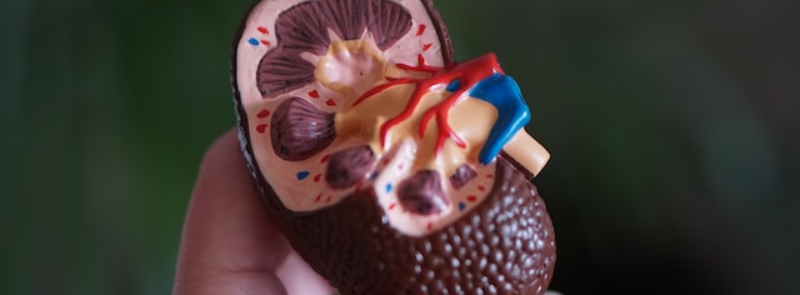
When It Occurs
Annually Second Thursday of March
Official Website
Timeline
Days Passed (710)
# Hashtags
#WorldKidneyDay #KidneyHealth
World Kidney Day (WKD) is a global health awareness campaign that underscores the significance of kidneys and strives to diminish the prevalence and impact of kidney disease and its associated health challenges on a global scale.
Annually observed on the second Thursday of March, World Kidney Day began with 66 countries participating in 2006, and within two years, this number increased to 88. This initiative is a collaborative effort between the International Society of Nephrology (ISN) and the International Federation of Kidney Foundations (IFKF). The primary objective of WKD is to raise awareness about kidney conditions, which, although often treatable, tend to be a secondary health concern for a significant portion of the population.
History and Significance
Origin:
- World Kidney Day was first celebrated in 2006. It was initiated by the International Society of Nephrology (ISN) and the International Federation of Kidney Foundations (IFKF) to create awareness about kidney health.
Significance:
- Kidneys are vital organs that filter waste from the blood, regulate blood pressure, and balance electrolytes. However, kidney diseases often go undiagnosed until they reach an advanced stage.
- WKD emphasizes the importance of preventive behaviors, risk factors, and how to live with kidney disease.
Objectives
-
Raise Awareness:
- Educate the public about the importance of kidney health and the prevalence of kidney diseases.
- Inform about the key risk factors such as diabetes, hypertension, and obesity.
-
Encourage Screening:
- Promote regular screening for kidney diseases, especially in high-risk groups.
- Highlight the importance of early detection and treatment to prevent kidney failure.
-
Promote Healthy Lifestyle:
- Advocate for healthy lifestyle choices to prevent kidney disease, such as maintaining a balanced diet, exercising regularly, staying hydrated, and avoiding excessive use of over-the-counter painkillers.
-
Support Patients:
- Provide support and education for individuals living with kidney disease.
- Promote the importance of organ donation and transplantation.
-
Encourage Government Action:
- Advocate for better policies and funding for kidney disease research and treatment.
- Encourage governments to implement public health measures to prevent and manage kidney diseases.
Themes
Each year, World Kidney Day focuses on a specific theme to address different aspects of kidney health. Examples of past themes include:
- 2021: Living Well with Kidney Disease
- 2022: Kidney Health for All - Bridging the Knowledge Gap to Better Kidney Care
- 2023: Kidney Health for Everyone Everywhere - Preparing for the Unexpected, Supporting the Vulnerable
Activities and Celebrations
-
Health Screenings:
- Organize free kidney health screenings and check-ups in hospitals, clinics, and public places.
- Encourage people to check their blood pressure, blood sugar, and kidney function.
-
Educational Campaigns:
- Conduct educational seminars, workshops, and webinars on kidney health and disease prevention.
- Distribute informational materials such as brochures, posters, and online resources.
-
Community Events:
- Hold community walks, runs, and other physical activities to promote kidney health.
- Organize public talks and Q&A sessions with healthcare professionals.
-
Social Media and Online Campaigns:
- Use social media platforms to spread awareness using hashtags like #WorldKidneyDay.
- Share stories, facts, and tips on maintaining kidney health.
-
Advocacy and Policy Initiatives:
- Engage with policymakers to advocate for better kidney health policies and funding.
- Collaborate with health organizations to support kidney disease research and public health initiatives.
Challenges Addressed
-
Awareness Gap:
- Many people are unaware of the importance of kidney health and the risk factors for kidney disease. WKD aims to close this gap through widespread awareness campaigns.
-
Early Detection:
- Kidney diseases are often detected late, leading to severe complications. WKD promotes regular screenings and early diagnosis to improve outcomes.
-
Access to Care:
- In many regions, access to kidney care, including dialysis and transplantation, is limited. WKD advocates for equitable access to care for all individuals.
-
Lifestyle Factors:
- Poor lifestyle choices such as unhealthy diet, lack of exercise, and excessive use of painkillers can contribute to kidney disease. WKD encourages healthier living to prevent these diseases.
-
Support for Patients:
- Living with kidney disease can be challenging. WKD aims to provide support and resources to patients and their families.
How to Get Involved
-
Participate in Events:
- Join local or virtual events organized for World Kidney Day, such as health screenings, educational seminars, and community walks.
-
Spread Awareness:
- Use social media to share information about kidney health, using relevant hashtags and participating in online campaigns.
-
Get Screened:
- If you're at risk for kidney disease, get a screening test and encourage others to do the same.
-
Adopt Healthy Habits:
- Make lifestyle changes that promote kidney health, such as eating a balanced diet, exercising regularly, staying hydrated, and avoiding smoking and excessive alcohol consumption.
-
Support Organizations:
- Donate to or volunteer with organizations that focus on kidney health and support patients with kidney disease.
By participating in World Kidney Day, individuals and communities can contribute to the global effort to reduce the burden of kidney diseases and improve the health and well-being of people worldwide.


